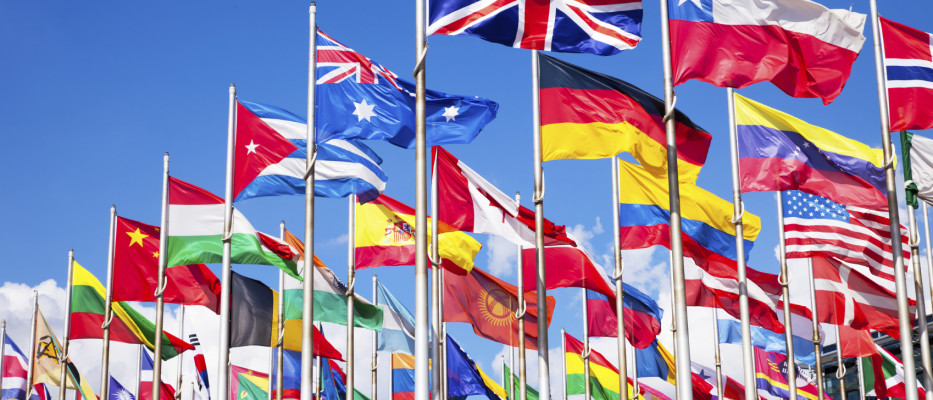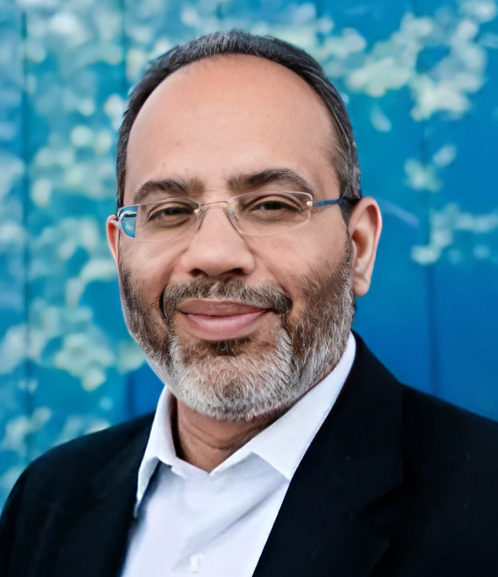Fast-paced changes are taking place in all sectors across the world, among them the reshaping of the global security landscape. This we cannot afford to ignore. With the world economy becoming increasingly more and more interconnected every passing day, these changes are influenced and driven by the revolutionary transformations, in economics, politics, technology etc to name just a few, be they in government, business or society. Because of the fluid nature of the security context understanding among all decision makers has become crucial. All interested entities, private or government, involved in either investing or promoting/advancing trade or commercial links, must understand these changes and the possible ramifications that will surely follow.
Many states around us are in a state of chaos and turmoil because they face an enemy excelling in the use of unconventional asymmetric mode of warfare, combining guerilla tactics with terrorism. This menace has multiplied so alarmingly that it has resulted in an overall erosion of trust in the multilateral system. Many of the conflicts raging are no longer confined to one country alone, they transcend all borders and all economies, and in turn sow fear and uncertainty on an international scale.
We need to understand this transformation and evolution of the environment better as well as how the future security issues might shape up and affect us. Greater cooperation and collaboration is required between public and private sectors to look into the dynamics of how these security challenges might unfold over the next decade or so, through a long term prism whereby policy makers and business leaders understand the implications for any decisions that are taken to address the threat.
According to the World Economic Forum (WEF) some key measures to address the issue could be: (1) examine major factors that will be the drivers for change over the next decade or more and (2) examine the possibility of whether these factors might evolve and interact over time. WEF says that the ultimate aim of this exercise would be to (1) raise global awareness about the nature of future security issues (2) make all stake-holders understand the threat of such security risks and (3) identify how the collaboration between public-private enterprises will afford a better understanding of the threat.
To devise the international security agenda for the promotion of peace and security, we must engage with all sectors that would be touched by the threat i.e. business, government, academic, international organizations, etc. While one wishes things could be different, with geopolitical uncertainty showing no signs of abating any time soon. This partnership becomes critical for achieving the strategic advantage needed to understand not only the nature of such threats but the means to combat the same.
WEF says that, “In today’s world conflicts are no longer peripheral but transcend borders and economies”. We live in a dangerous world where shared borders are not necessary for a conflict to spread to other areas. A conflict in one part of the world can cause conflicts elsewhere, even thousands of miles away, passively as well as actively. To quote Wilson & Donnan as far back as 1997, “International borders are becoming so porous that they no longer fulfill their historical role as barriers to the movement of goods, ideas, and people, and as markers of the extent and power of the state.” Today we see how conflicts are transcending borders and economies and wreaking havoc at many places.

From all this turmoil some states are able to gain considerable advantage solely because of their military prowess, their geographical size and economic might enables them to use considerable leverage by influencing and shaping politics and security in areas that are undergoing periods of chaos. Globalization is a greatly misunderstood term. Many critics have pointed out over time that the contemporary form of globalization, driven by economic power is very beneficial to the west and clearly promotes the hegemony of Western culture and corporations, this in turn exploits cheap labour in the poorer countries and undermines the foundations of democracy and social stability by subjecting national political institutions to forces of economic change beyond their control. Claude Ake, a leading African critical thinker, has argued in this regard that: “Economic forces are constituting the world into one economy and, to a lesser extent, one political society. Nations participate in global governance according to their economic power, which is coextensive with their rights. The global order is ruled by an informal cabinet of the world’s economically most powerful countries; its law is the logic of the market, and status in this new order is a function of economic performance” There is a link, howsoever small, between globalization and conflict.
Living in a multilateral and networked world, it is increasingly apparent that our trust in this system has taken a beating, if not altogether eroded. The perception is that we have very little ability with which to counter and fight the speed with which the threats are multiplying and affecting the lives of peoples all over the world.
Illicit Financial Flows (IFF) of all types are associated with either ineffective state functioning or illegitimate use of state authority. In his essay titled “Illicit Activities Impact on Peace and Security”, Carlos Lopes says that IFF are intentionally hidden from the plain view of financial institutions and their impact and consequences are underestimated on many counts, namely regarding peace and security. But there is a strong nexus between IFF and conflict. Organized crime which facilitates IFF is rooted in corruption, terrorism is dependent on organised crime. They present a threat to governance by undermining both political institutions and confidence in them and weaken safeguards when tensions arise. Equally, conflict undermines institutional resilience and governance systems designed to address inequalities, or corruption hindering the incentives for long term investments, over short term rent-seeking activities.
In order to best prepare for the security landscape of the future, WEF intends to “develop a unique body of research and tools for understanding politics through the lens of specific industries and across industries and develop a “map” of impact of geopolitics on industry; first by developing a taxonomy of common challenges and the impacts posed by geopolitics for industries, and secondly, by collecting best or common practices of industry to manage geopolitical impacts.”
Recent events have shown that the consequences of conflicts raging today have been quite negative. The changing security landscape has the potential of impacting very negatively on a global scale. (Based on discussions, formerly in WEF’s Global Agenda Council (GAC) for “Counter-terrorism” and recently in GAC’s “Transparency and Anti-Corruption”.)




